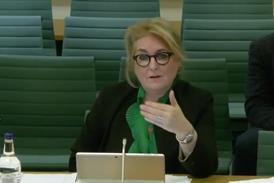A law firm director whose employee helped himself to client funds has been fined £2,000 for failing to keep up-to-date accounts.
Brendan Casey, manager of Bradford firm BMC Law Ltd, was sanctioned after it was discovered that a fee earner had misappropriated thousands of pounds by diverting it into his own account.
The Solicitors Regulation Authority said Casey had reported concerns about the conduct of his employee, who was not a solicitor, in 2018 after what he called a ‘routine check of settled files’. These revealed that the employee had moved client monies that were intended to settle personal injury claims to his own bank account.
Casey detailed six matters in which a total of £24,475 was taken and stated that the fee earner was responsible. Casey also explained that he was repaying the sums concerned, instructing compliance consultants and reporting the matter to the police.
The SRA found that the firm did not ensure that settlement sums had cleared into the firm’s accounts before paying sums to clients from monies held in the general client account. This gave rise to shortages of client funds.
The firm was able to quickly replace £18,000 to five clients, but took several months to repay all the misappropriated money in full.
An investigation found the firm’s accounts were not up to date – an external bookkeeper had been retained by BMC in September 2017 to look at the books, but this was three months after the previous bookkeeper had left.
Failure to produce updated accounts meant that when the rogue employee provided his own bank details to third parties, Casey was not able to know whether funds had been diverted.
Casey said the employee had used a degree of sophistication to steal the money and cover his tracks, but he was ultimately discovered when the firm took on an external bookkeeper. He immediately reported the matter to the SRA and offered a personal guarantee to replace client funds.
As well as being fined, Casey also agreed to pay £600 costs and agreed not to act as compliance officer for any firm, nor to act as a sole practitioner or to hold, receive or have access to client money.
























